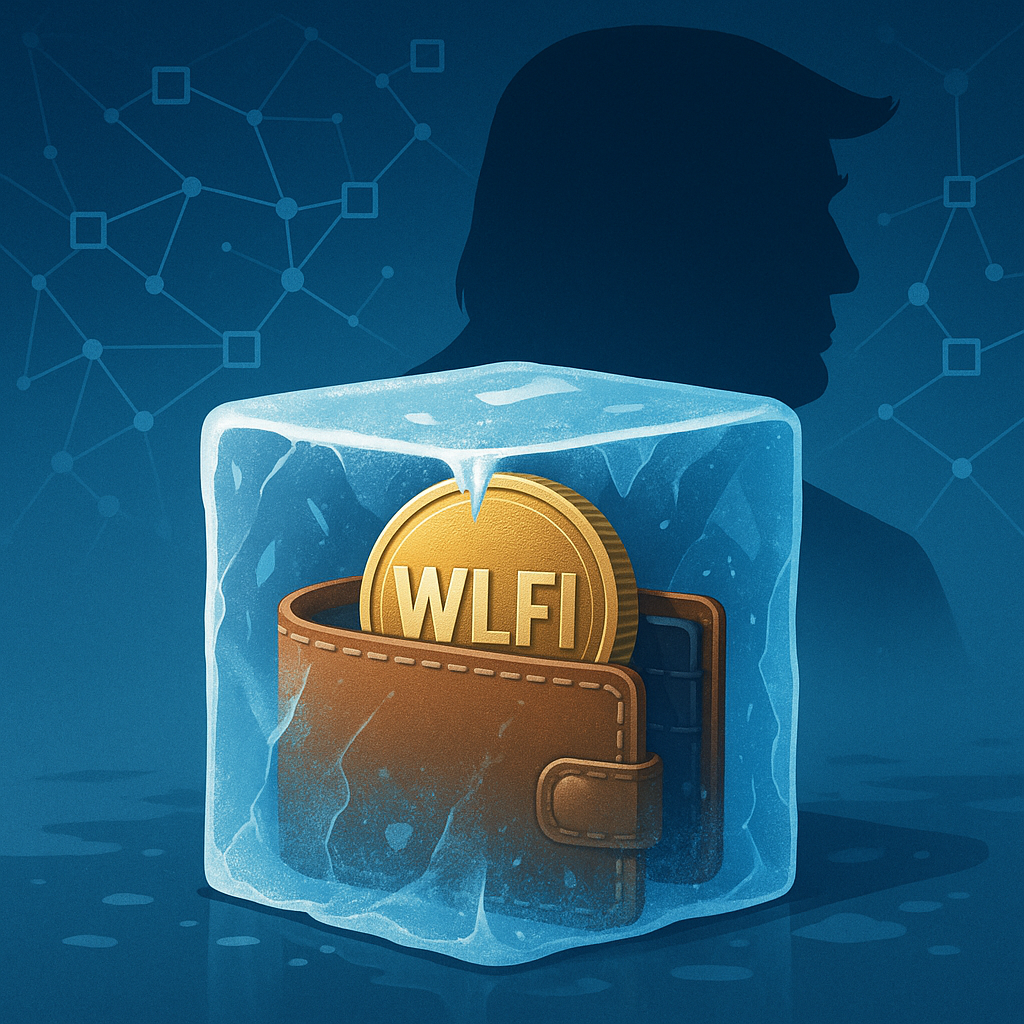World Liberty Financial (WLFI), a crypto project linked to Donald Trump, has landed in controversy after blacklisting hundreds of wallets. Developers and investors are now questioning its practices and fairness. Polygon developer Bruno Skvorc accused the project of freezing his funds and refusing to unlock them. He said WLFI marked his wallet as “high risk” and blocked access, despite accepting funds from the same address earlier. Skvorc described the project as “the new age mafia,” claiming investors have no clear way to appeal decisions or recover locked tokens.
The backlash grew louder when TRON founder Justin Sun said WLFI also froze his wallet. He denied selling tokens and called the freeze “unreasonable.” Both cases highlight a broader problem in crypto: the use of automated compliance tools that often flag wallets for indirect or outdated links to blacklisted platforms. Critics say this practice risks punishing legitimate users without due process.
WLFI Explains the Blacklist of 272 Wallets
In response to the criticism, WLFI disclosed that it blacklisted 272 wallets. The project said most of the cases were tied to phishing attacks or compromised accounts. According to the breakdown, 79% of wallets were flagged due to phishing attempts, while 18% had already been taken over by scammers. The team also said a small number of wallets showed high-risk exposure or misuse of funds.
WLFI insisted the blacklist was designed to protect investors, not punish them. The project added that it is working with affected users to secure their assets. While some observers welcomed the proactive approach, others warned that blacklisting can easily cross a line. ZachXBT, a well-known blockchain investigator, praised the effort to protect victims but noted that false positives could cause lasting damage to WLFI’s reputation.
Trump Connection Raises the Stakes for WLFI
The Trump connection has added another layer of intrigue. WLFI launched in September with strong branding and a $7 billion market cap. Its ties to the Trump family gave the project instant visibility, but also made it a magnet for scrutiny. For critics like Skvorc, the political link makes it harder to challenge WLFI’s decisions. He argued that investors have little legal recourse when powerful figures are involved.
The controversy comes as the WLFI token faces volatility. After an early slump triggered by sell-offs, the token recently rebounded by around 8%, trading at $0.1966. Still, investor confidence remains fragile. The disputes over wallet freezes show that WLFI’s biggest challenge may not be market performance, but trust.
Compliance Tools and the Risk of Overreach
At the heart of the dispute is WLFI’s reliance on compliance software. These tools scan blockchain transactions for links to sanctioned entities, mixers, or blacklisted platforms. But they often flag addresses for minor or indirect activity. In Skvorc’s case, his wallet was linked to Tornado Cash, Garantex, and Netex24 — all of which have drawn regulatory attention. While these links were several steps removed, the system still marked his wallet as high risk.
Industry voices warn that such overreach undermines the principles of blockchain. Justin Sun echoed this sentiment, calling tokens “sacred and inviolable.” If compliance tools become too aggressive, they risk alienating legitimate investors and fueling accusations of censorship. For WLFI, finding a balance between safety and openness will be critical.
The Road Ahead for WLFI and Its Investors
The WLFI project sits at a crossroads. On one hand, it wants to prove it can protect its community from scams and hackers. On the other, it must address investor concerns about fairness, transparency, and overreach. The Trump connection guarantees that every decision will attract attention, whether positive or negative.
For now, WLFI has defended its blacklist as a necessary step. Yet the disputes with high-profile figures like Justin Sun show the risks of getting it wrong. If the project can refine its compliance process and restore trust, it may strengthen its place in the market. But if complaints keep piling up, WLFI could face the same fate as other projects undone by reputational damage. The outcome will depend on whether it can strike the right balance between security and investor rights.
